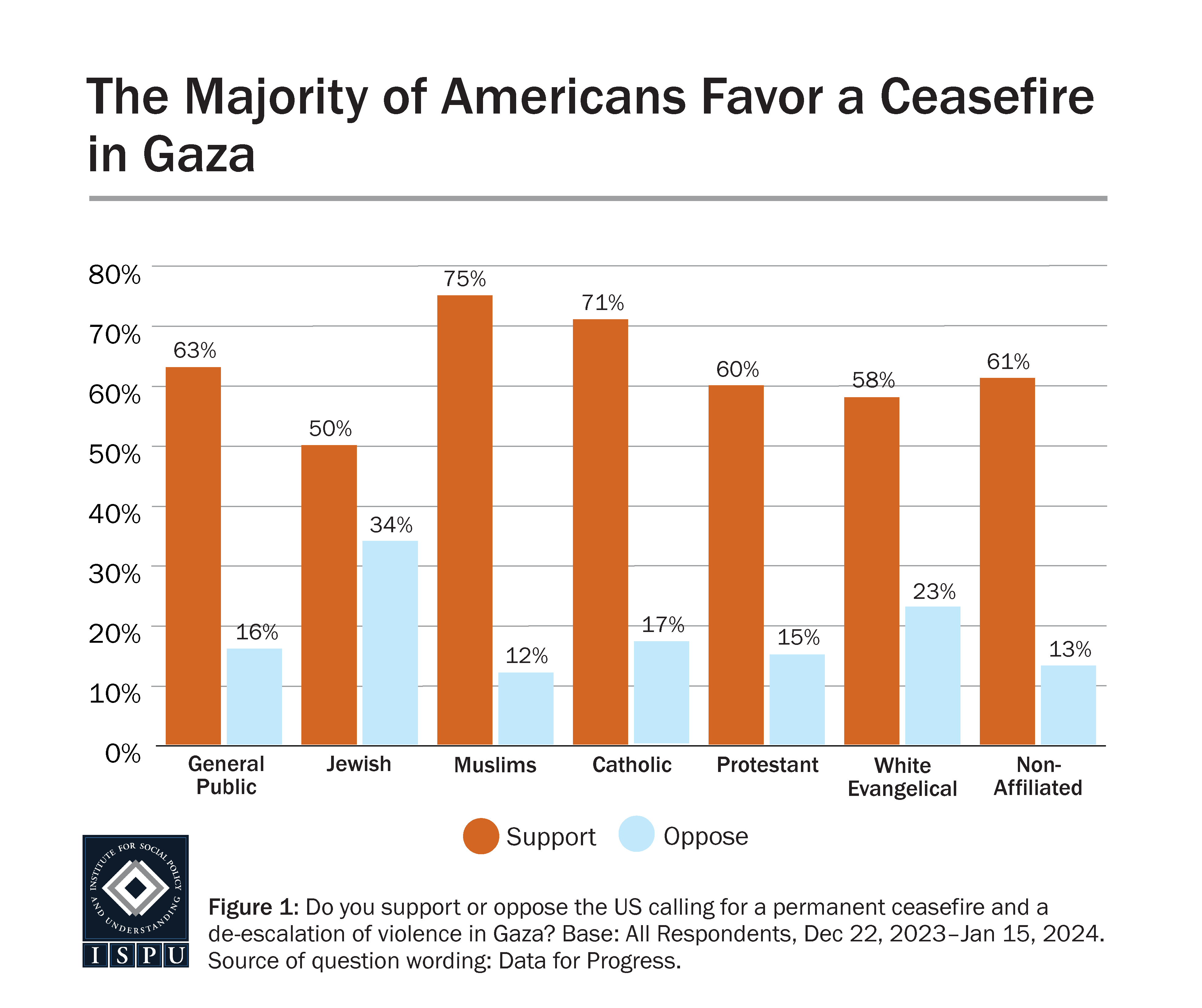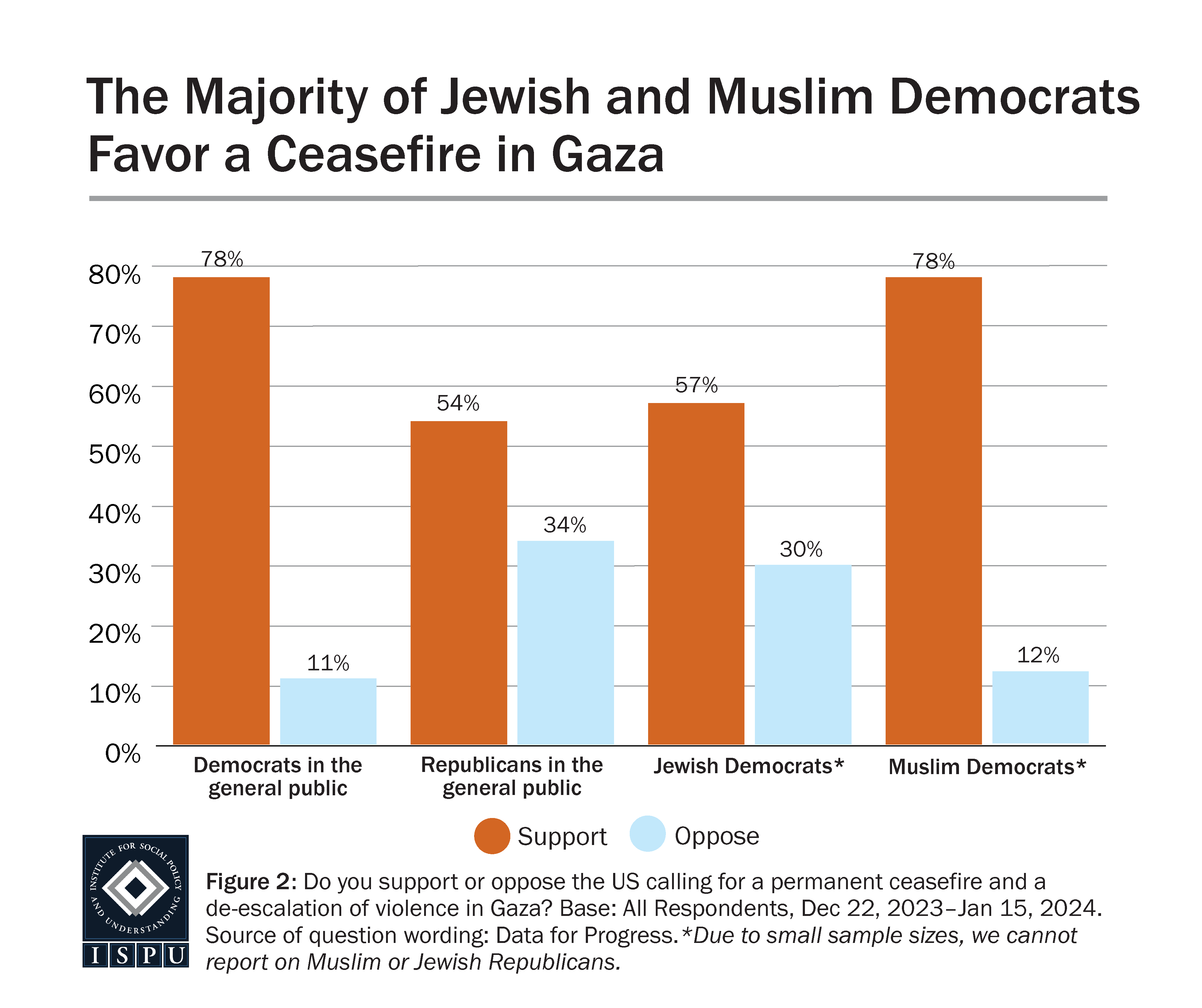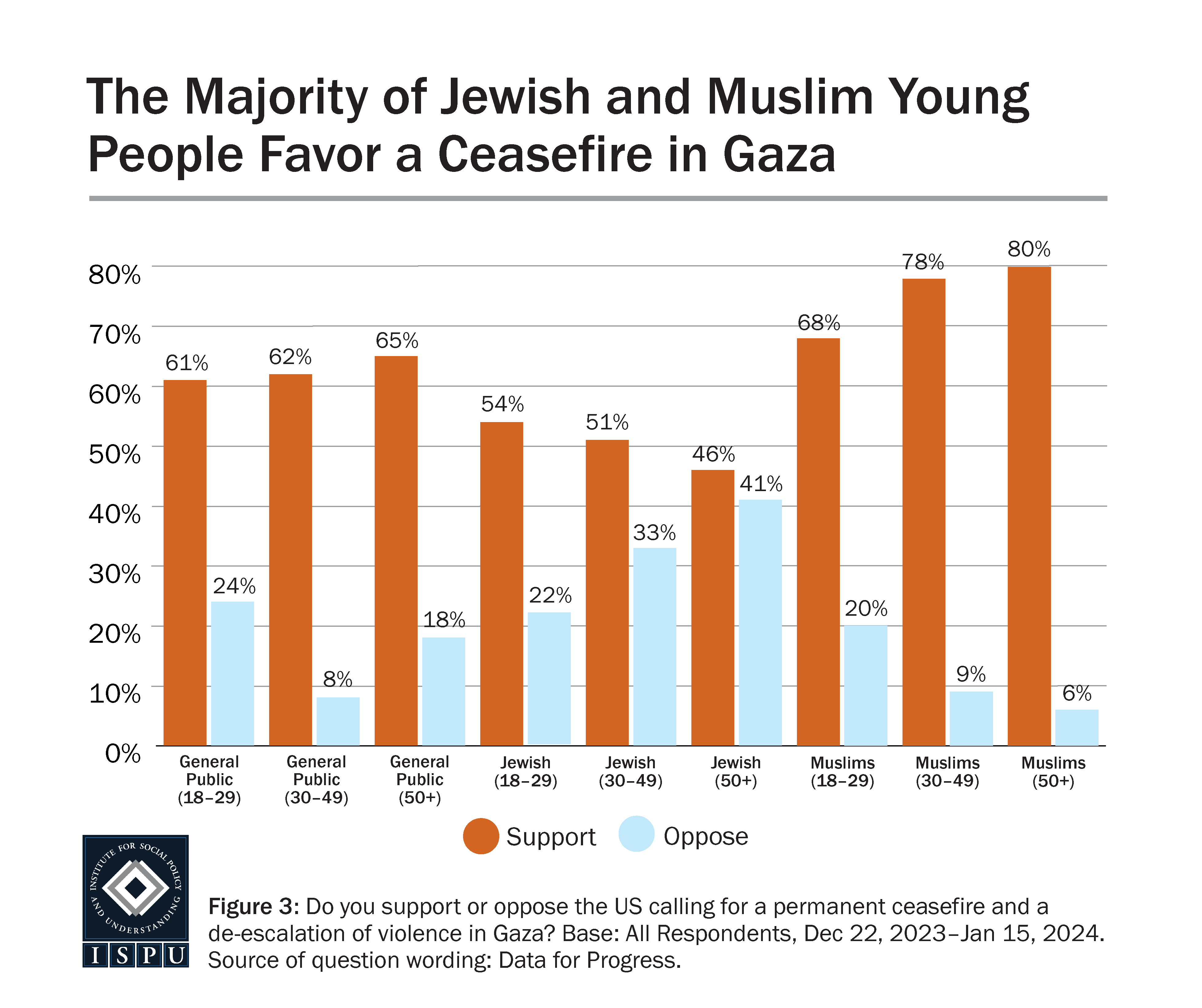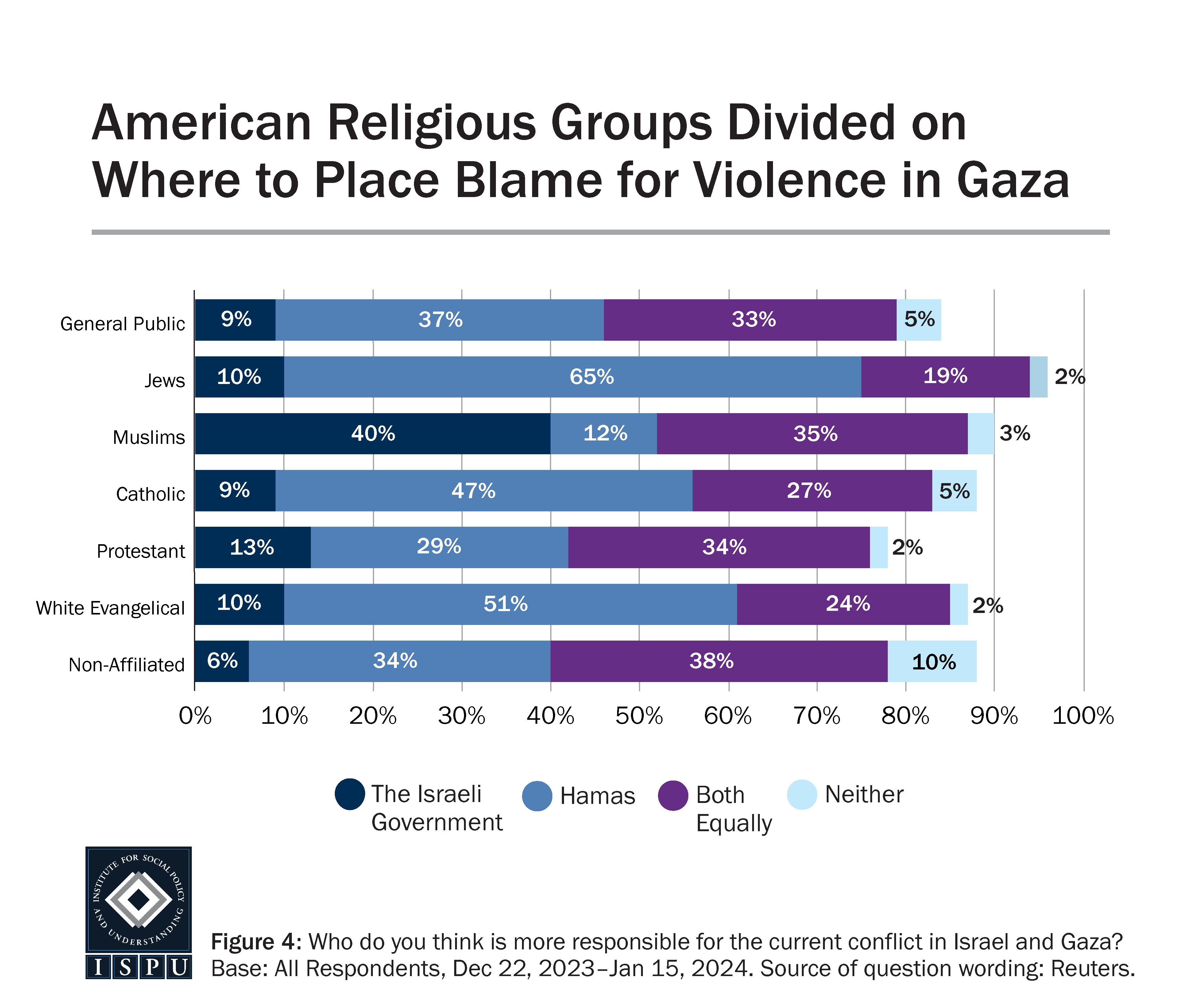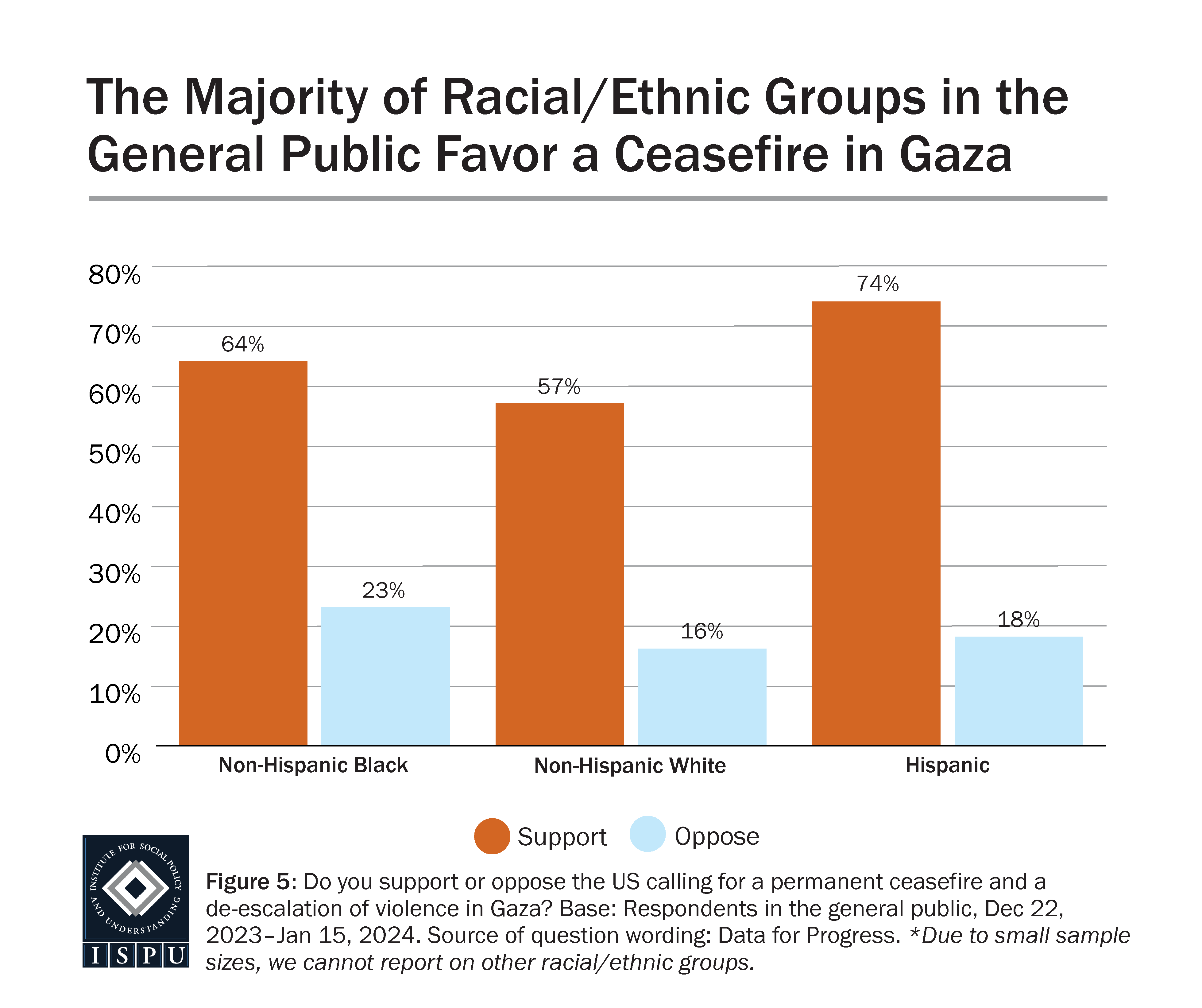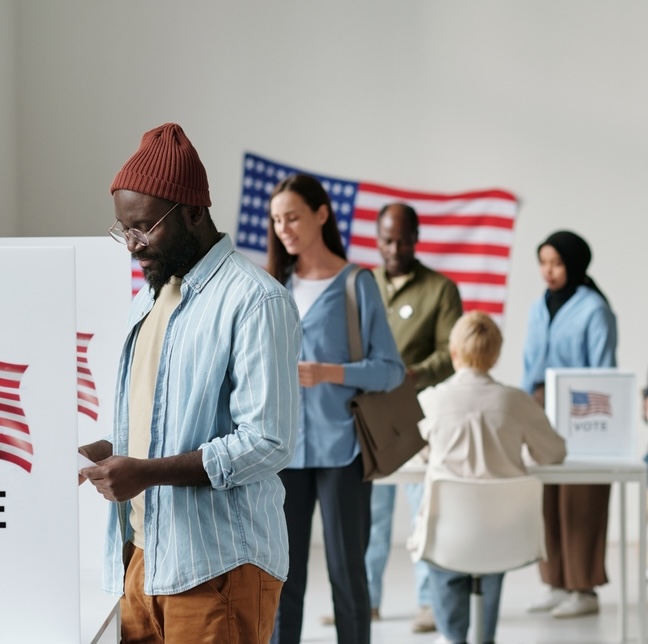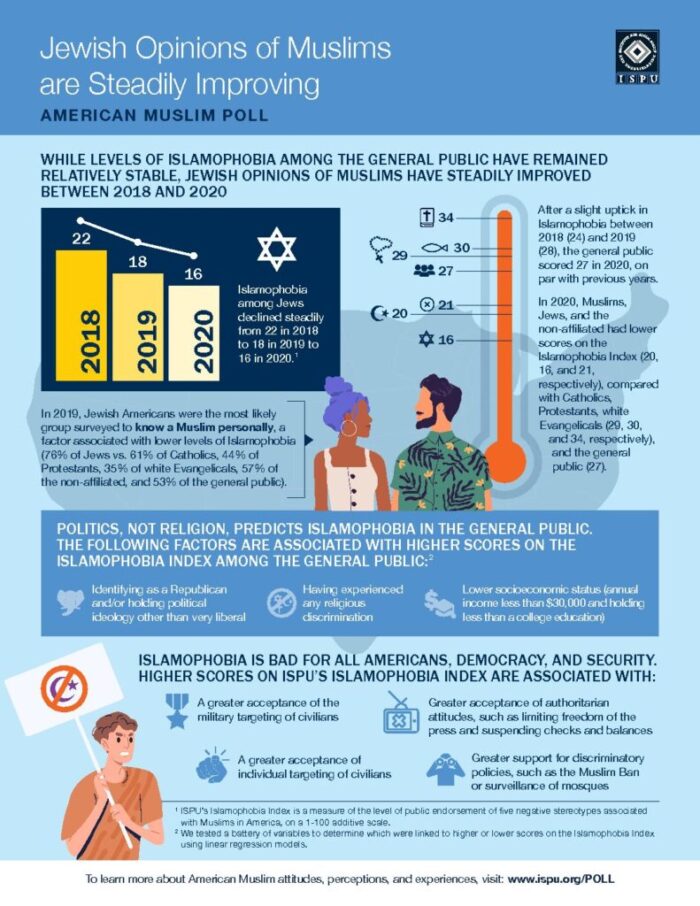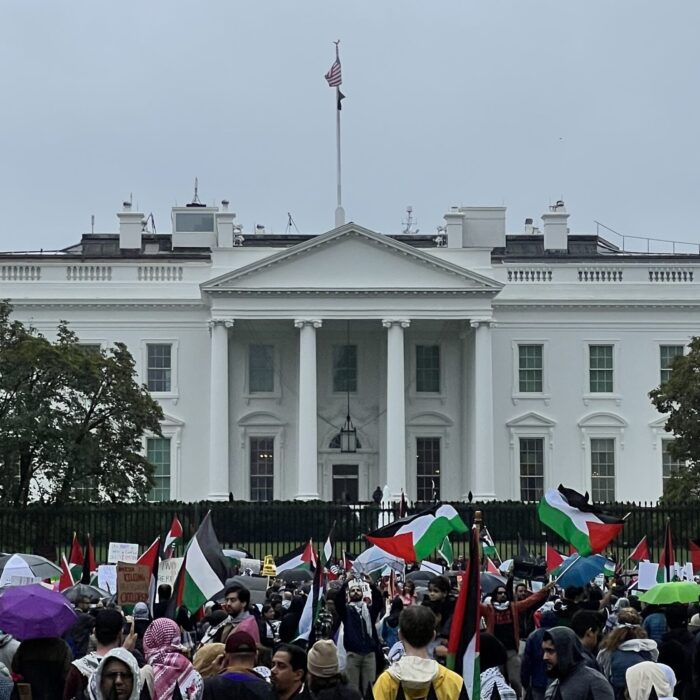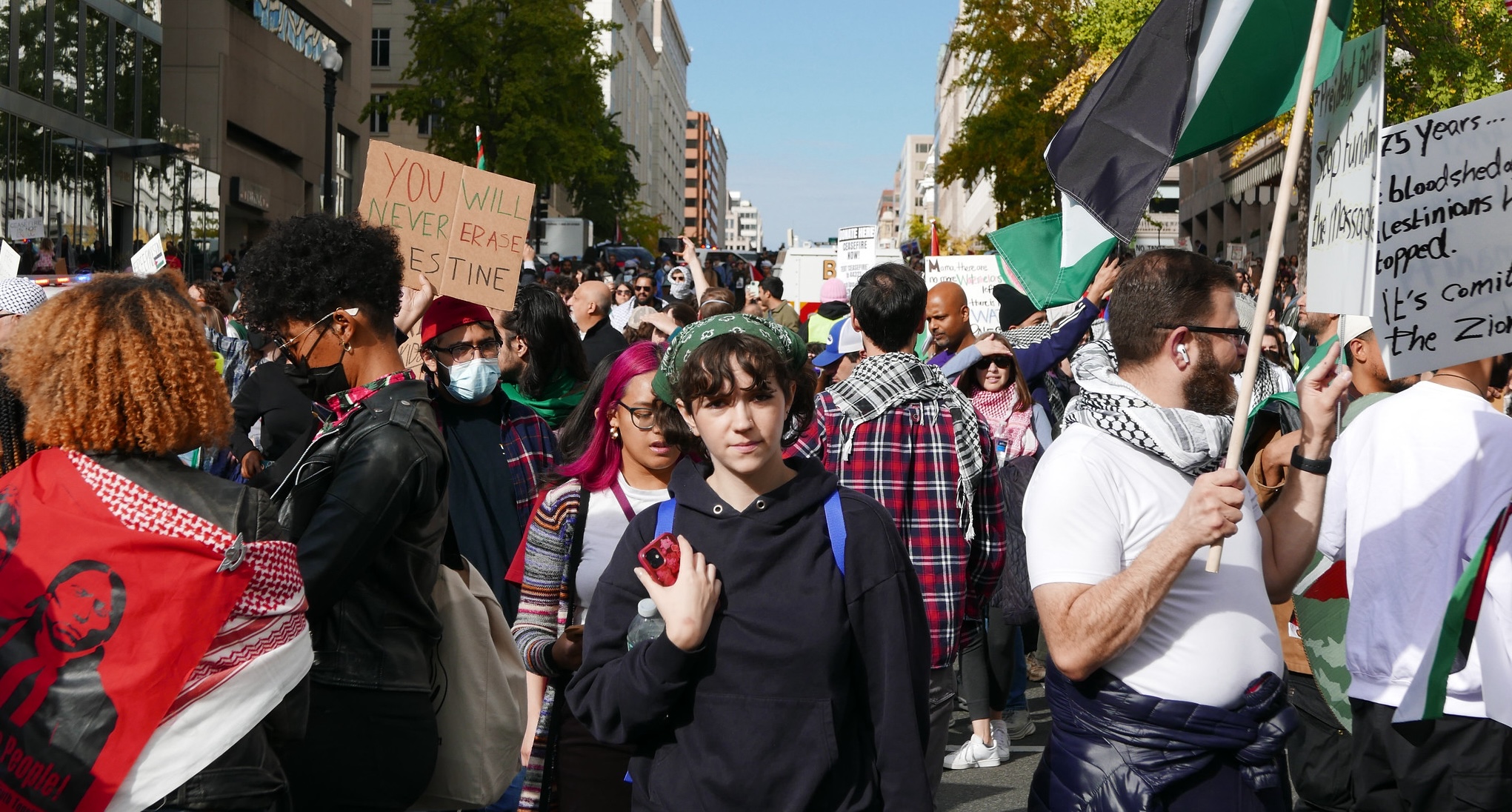
Majority of Muslim and Jewish Democrats Favor a Permanent Ceasefire in Gaza
February 12, 2024 | BY ERUM IKRAMULLAH
The crisis in Gaza, which as of this writing has claimed the lives of around 1,200 Israelis and more than 25,000 Palestinians, has captured the attention of the world. Since October 7 several surveys have captured American public opinion on the situation. These studies examined the views of the old and young, Democrats and Republicans, men and women, college-educated and non-college-educated. The missing voice has been that of religious groups, particularly Muslim and Jewish Americans, who are often perceived as on opposing sides of this crisis.
This survey aimed to assess the views of these two key American religious groups, as well as Catholic, Protestant, including white Evangelicals, and those not affiliated with a religious group, on a number of contentious topics. This is the first in a series of brief analysis pieces, starting with a look at American religious and non-religious groups’ support for a permanent ceasefire in Gaza and where respondents place blame for the ongoing violence. The full methodology is available in Appendix I.
Here is what we discovered:
DOWNLOAD THE ANALYSIS PDF

Religious Groups’ Views on Ceasefire:
Majority of Muslim and Jewish Democrats Favor a Permanent Ceasefire in Gaza
February 12, 2024 | BY ERUM IKRAMULLAH
The crisis in Gaza, which as of this writing has claimed the lives of around 1,200 Israelis and more than 25,000 Palestinians, has captured the attention of the world. Since October 7 several surveys have captured American public opinion on the situation. These studies examined the views of the old and young, Democrats and Republicans, men and women, college-educated and non-college-educated. The missing voice has been that of religious groups, particularly Muslim and Jewish Americans, who are often perceived as on opposing sides of this crisis.
This survey aimed to assess the views of these two key American religious groups, as well as Catholic, Protestant, including white Evangelicals, and those not affiliated with a religious group, on a number of contentious topics. This is the first in a series of brief analysis pieces, starting with a look at American religious and non-religious groups’ support for a permanent ceasefire in Gaza and where respondents place blame for the ongoing violence. The full methodology is available in Appendix I.
Here is what we discovered:
DOWNLOAD THE ANALYSIS PDF
1. The majority of Americans favor a ceasefire in Gaza
The majority of Muslim, Catholic, Protestant, among them white Evangelical, and non-affiliated Americans favor a permanent ceasefire in Gaza. Though just shy of a majority, Jewish Americans are more likely to favor (50%) than oppose (34%) a cessation in violence.
2. Jewish and Muslim Democrats, like Democrats in the general public, favor an end to the violence in Gaza
The majority of Republicans in the general public also favor a ceasefire. Due to small sample sizes, we cannot report on Muslim or Jewish Republicans. Of note: Jews (10%) and Muslims (18%) are the least likely religious groups to identify as Republican, according to ISPU’s American Muslim Poll.
3. The majority of young Americans favor a cessation in violence in Gaza
Older Jews (age 50+) are almost twice as likely as younger members of the group (age 18-29) to oppose a ceasefire (41% vs. 22%), while 46% of older Jews support a ceasefire compared to 54% of younger members. Among the general public, all age groups studied are equally likely to support a ceasefire (61% – 65%). Among Muslims, surprisingly, young people are more likely than their elders to oppose a ceasefire in Gaza (20% vs 6%) though a majority of all age groups support it (between 68% – 80%).
4. Though there is widespread agreement across religious groups in support of a ceasefire in Gaza, views on where to lay the blame are divided
A majority of Jews (65%) and white Evangelicals (51%) blame Hamas for the ongoing violence, and the plurality of Catholics (47%) agree. Muslims are roughly four times as likely to blame the Israeli government (40%) as Hamas (12%), while a little more than a third blame both sides equally (35%). Protestants are about twice as likely to blame Hamas (29%) as the Israeli government (13%), but the plurality (34%) blame both equally. Non-affiliated Americans are far more likely to blame Hamas as opposed to the Israeli government (34% vs 6%) but the plurality blame both equally (38%).
5. More than half of non-Hispanic Black (64%), non-Hispanic white (57%), and Hispanic (74%) Americans in the general public express support for a ceasefire in Gaza
Black and Hispanic Americans make up significant minority voting blocs whose views are important to consider in this election cycle. Due to small sample sizes, we cannot report on the views of racial/ethnic groups among Muslims.
Conclusion
US involvement in the conflict through sustained and long term military and diplomatic aid to Israel means that the course this crisis takes is directly relevant to the American public, especially ahead of the 2024 general election. ISPU will continue to inform the dialogue on this important issue with a series of analysis pieces throughout early 2024.
RELATED RESOURCES
- 09 February, 2024
*Correction: Figures 1 and 4 in this analysis originally listed incorrect figures for religiously non-affiliated respondents’ views on a ceasefire. The correct figures are listed in the text of the report. The graphs have been updated to display the correct figures.

Erum Ikramullah is the Senior Research Project Manager at ISPU, where she manages the day-to-day activities of the organization’s research studies. Learn more about Erum→


